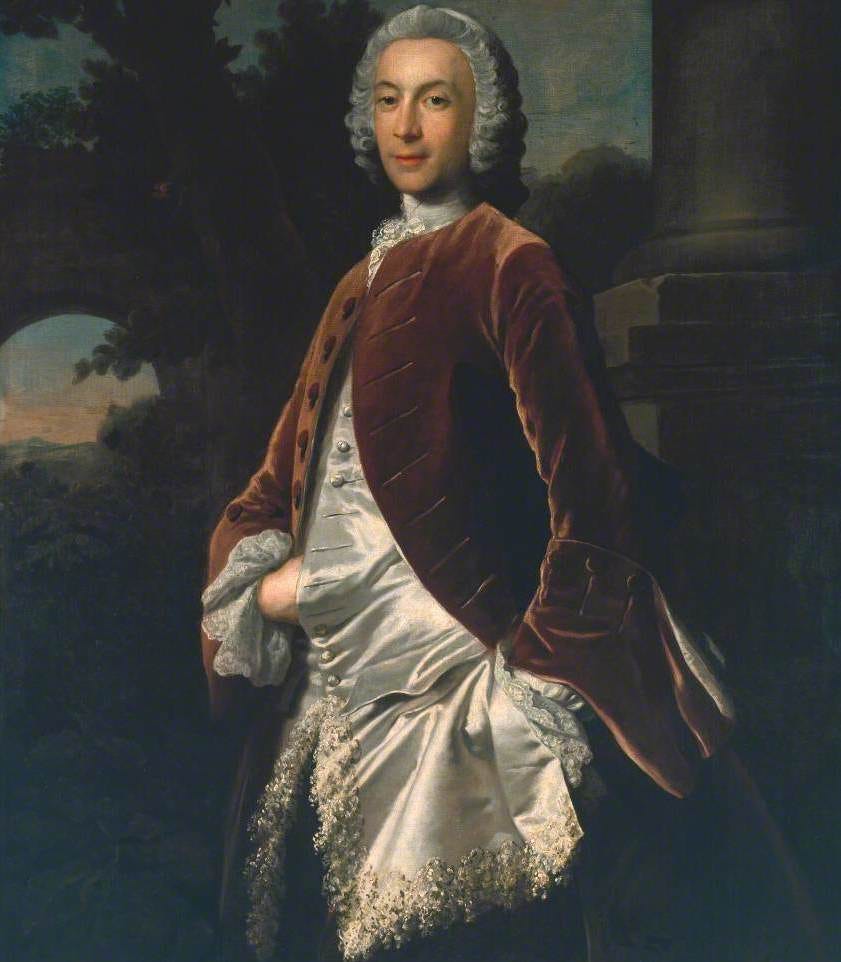“Well, my dear, I am alive, and here! But how long I shall be either here, or alive, I cannot say!”
Dear friends,
We’re almost a quarter of the way through and it feels like we’re reaching a crescendo. Even so, there have been some long letters this week. So long in fact, that even Anna has complained about them:
“I was not a quarter dressed; and only slipped on my morning sacque; proceeding no further till (long as they are) I had read them all through”
This next line from letter 84 also made me smile. It seems unlikely that Richardson would be making a veiled comment about the plot so far, but that’s exactly how I read it:
“I was quite tired with so many attempts, all to the same purpose. I am amazed that they are not! — So little variation! And no concessions on either side!”
The many attempts to convince Clarissa to marry Mr Solmes have felt tedious at times, but perhaps this was Richardson’s intention. By now we’re thoroughly frustrated and wondering how much more we can take - just like Clarissa. Her desperation is becoming clear in the composition of the letters themselves. She keeps breaking off for emotional release, getting lost in her own frustration, making exasperated remarks. Clarissa has realised that no matter what she does now, her reputation has already been irreparably damaged. “I shall never wipe off the stain of my confinement,” she writes to Anna in letter 85. Anna agrees that her family have made it impossible for her to marry Solmes now and she has only two options left: to remain single or marry Lovelace.
I’m struck by how little agency the women have. The action is enacted upon them with so little power to change it. In letter 76 Clarissa writes about men as:
“This mischievous sex! What had I to do with any of them; or they with me!— I had deserved this, were it by my own seeking, by my own giddiness, that I had brought myself into this situation — I wish, with all my heart — But how foolishly we are apt to wish, when we find ourselves unhappy and know not how to help ourselves.”
Not even the women’s words are taken seriously. When Clarissa realises that her consent to spend an afternoon with Solmes has been interpreted as a sign of her acceptance, her walls go up immediately. She flies into severe refusals which, arguably, make her situation far worse. Mr Solmes is all dressed up; nervous to a near comical degree. In the few moments he has alone with Clarissa, he is clearly intimidated by her. But we soon get an overwhelming sense of Clarissa as a vulnerable young woman bullied and oppressed by her male relations. She’s trapped in a room without female support, at the mercy of Solmes, her uncle and brother, who is physically violent. When they aren’t threatening and badgering her, they’re conspiring about her in the third person. I would love to see this on screen, a powerful picture of the patriarchy.
Meanwhile the women of the house are not allowed to show their own feelings. Dolly tells Clarissa:
“My mamma has been weeping for you, too, with me; but durst not let anybody see it. Oh my Dolly, said my mamma, there never was so set a malice in man as in your cousin James Harlowe. They will ruin the flower and ornament of their family.”
The family argument has now escalated to such a degree that no-one knows how to back down, least of all Solmes. Clarissa thinks he might easily be put off without her family’s interference. Clarissa paints him as unmanly, at pains to appear stronger than he really is. In one touching moment he appears ready to cry. He’s caught in her family’s trap almost as much as she. But while both Solmes and Lovelace remain, “resolved to persevere while I remained single,” they are hard to sympathise with. “Take my estate, sir, with all my heart, since you are such a favourite in this house! — only leave me myself,” pleads Clarissa.
Clarissa knows she must make a plan soon, and has fallen into Lovelace’s power, giving him the go ahead for an escape plan. I’m touched by Anna’s alternative solution, “If you allow of it, I will go off privately with you, and we will live and die together.” If only the novel might end this way.
How do you feel about this week’s letters?
If you would like to follow our read-along please subscribe below, visit your Substack subscription settings and make sure Letters & Libations is checked. Please get in touch if you would like to be added to the Instagram chat group.
Featured image is ‘A Gentleman in a Brown Velvet Coat’ by Joseph Highmore (1692–1780) courtesy of Tate


